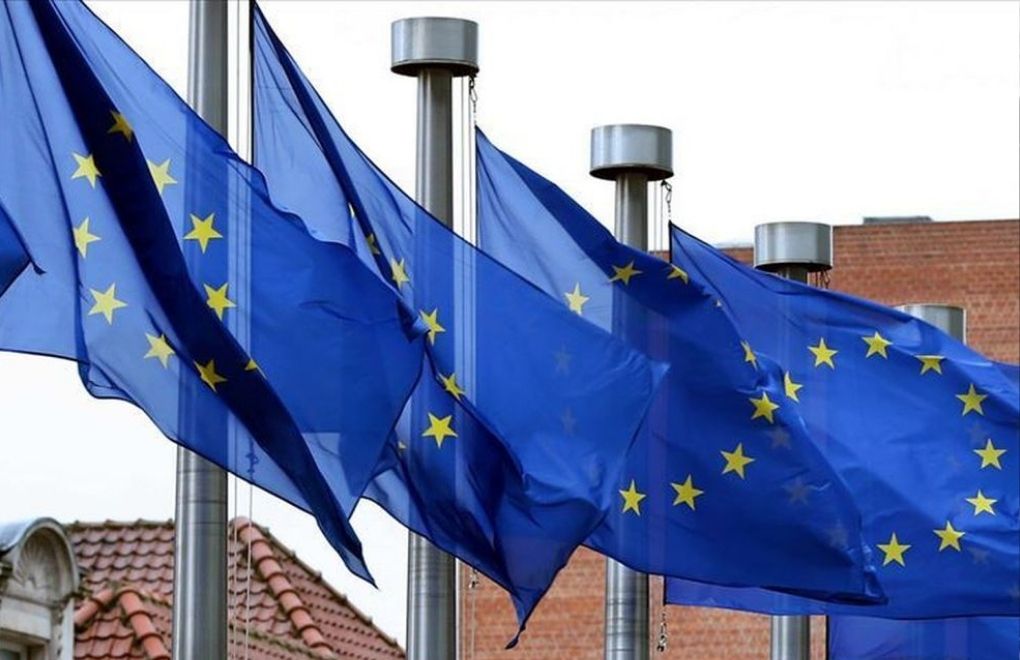* Photo: Anadolu Agency (AA)
Click to read the article in Turkish / Kurdish
In preparation for the leaders' meeting of the European Council in Brussels, the capital city of Belgium, tomorrow (December 16), the General Affairs Council exchanged views on the draft conclusions.
In this context, a discussion took place in the light of the Commission's annual communication on European Union (EU) enlargement policy and the reports on Montenegro, Serbia, Turkey, the Republic of North Macedonia, Albania, Bosnia and Herzegovina and Kosovo.
Accordingly, the Ministers have approved the Council conclusions on enlargement and stabilization and association process.
In the conclusion on Turkey, the Council has "noted with regret" that the country "continues to move further away from the European Union" and "recalled recalls its previous conclusion which noted that Turkey's accession negotiations therefore effectively have come to a standstill and no further chapters can be considered for opening or closing."
About the General Affairs Council: The General Affairs Council coordinates preparations for European Council meetings. It is also responsible for a number of cross-cutting policy areas. The General Affairs Council is mainly made up of the European affairs ministers from all EU member states.
State of rights and freedoms
Under the chapter on Turkey, the conclusions have touched upon a series of subjects ranging from the Eastern Mediterranean to refugees in Turkey as well as the state of rights and freedoms in the country.
The Council has "reiterated its serious concerns about the further and deeply worrying backsliding in the areas of democracy, rule of law, and fundamental rights including the freedom of expression, as well as the systemic lack of independence of the judiciary."
'State of emergency measures integrated into law'
Some of the findings about rights and freedoms are as follows:
"A number of restrictive measures taken during the state of emergency have been integrated into law and have a profound negative impact on people in Turkey. Civil society and its organisations operate under continuous pressure in an increasingly challenging environment.
The systemic lack of independence and undue pressure on the judiciary cannot be condoned, nor can the ongoing restrictions, detentions, imprisonments, and other measures targeting journalists, academics, members of political parties, including parliamentarians, lawyers, human rights defenders, social media users, and others exercising their fundamental rights and freedoms.
"The Council stresses the importance of respecting the legality and integrity of the electoral process, in particular against the backdrop of the numerous arrests, dismissals and replacements of democratically elected municipal mayors, and the targeting of opposition parties and their members.
'Grave concerns' over 'negative developments'
"The Council reiterates its grave concerns over the reported continued negative developments in these areas, recalls the international standards and the obligations to which Turkey has subscribed and committed itself, and calls on Turkey to urgently reverse the negative trends and credibly address the many serious shortcomings identified in the Commission's report.
Turkey should also step up its cooperation with the Council of Europe and its relevant bodies and institutions, address their key recommendations, fully implement the European Convention of Human Rights and other international human rights instruments to which Turkey is a party, as well as execute all judgments of the European Court of Human Rights in line with Article 46 of the ECHR.
About the European Council meeting
The General Affairs Council exchanged views on the draft conclusions in preparation for the leaders' meeting on December 16 in Brussels. The European Council will discuss developments related to COVID-19, crisis management and resilience, energy prices, security and defence, migration and the situation in Belarus and Ukraine tomorrow (December 16).
On COVID-19, they are expected to discuss the current epidemiological situation of the pandemic and the emergence of a new COVID-19 variant, including the vaccine situation and coordination efforts. EU leaders will also discuss the external dimension of migration.
The following issues will also be on the agenda: crisis management and resilience, after the adoption of conclusions by the General Affairs Council on November 23, 2021; the development in energy prices in the light of the preliminary reports prepared by the Agency for the Cooperation of Energy Regulators (ACER) and the European Securities Markets Authority (ESMA).
Leaders are expected to discuss the situation at the EU's border with Belarus and Russia's border with Ukraine, as well as taking stock of the preparations for the EU-African Union Summit on 17-18 February 2022. (PT/SD)




